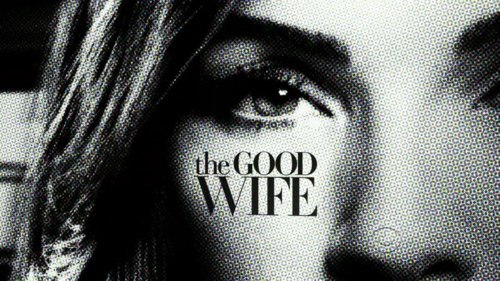It’s back to school season. For law students, this means shopping classes and making tough choices— Admin Law or Federal Income Tax? Eight a.m. lecture Monday and Wednesday, or three-hour Friday seminar? Fortunately, for those of us who aren’t lucky enough to have these options, there are Sunday nights, when CBS provides the best black letter course outside of law school in its long-running show The Good Wife. Based on the premise of a political wife, Alicia Florrick, rebuilding her life after her husband’s sex scandal, The Good Wife has transcended its torn-from-the-headlines origins to become a discourse on the current state of American law. The first five seasons have developed an impressive syllabus in black letter law.
Criminal Procedure: Like many legal dramas, The Good Wife covers its fair share of criminal storylines. Unlike many legal dramas—CSI, Law & Order, The Wire—that prominently feature prosecutors, the protagonists on The Good Wife practice criminal defense at the BigLaw firm Lockhart Gardner. While the lawyers apply their expertise to keeping unsavory clients out of jail, they also take on pro-bono cases that touch on difficult criminal law issues. The Innocence Project founder Barry Scheck has even made cameo appearances. In one, Lockhart Gardner has nine hours to stay the execution of a death row convict. In a prescient move, the lawyers argue that his execution is unconstitutional because the warden planned to use a lethal injection cocktail of expired drugs. Though this argument didn’t save the day on the show, real criminal defense lawyers have successfully employed it to delay executions.
Constitutional Law: A challenging, abstract first year topic, Constitutional Law is made accessible in The Good Wife—the show’s portrayal of rights issues focuses on how they apply to in real life. Season Four opens with the police pulling over Alicia’s son Zach for no good reason and searching his car. The officer finds “marijuana shake” and promptly arrests Zach. Zach later figures out that there’s a pattern of suspicious stops in the corridor where he was driving. Both he and the viewers learn that such illegal stops violate Fourth Amendment rights. The right to privacy also dominates the plot of the latest season of the show, which features NSA contractors spying on Lockhart Gardner and Alicia Florrick. Not only does the episode make fun of the government’s wiretapping efforts by portraying the contractors as unmotivated geeks, it also takes the issue of spying to the next level by exploring the constitutionality of one governmental agency sharing wiretapped data gathered for one purpose with another governmental agency to use for a completely different purpose.
Intellectual Property: Staying true to its torn-from-the-headline roots, The Good Wife is one of the most technologically aware shows on air. From its episode on cyber bullying to its episode on crowd sourcing the identification of a terrorist, The Good Wife ties technological developments into its plots faster than you can say “google.” These include forays into copyright and trademark law. A recent episode tells the David versus Goliath story of an indie artist accusing a hit TV show of stealing his cover. Based on the real-life dispute between singer-songwriter Jonathan Coulten and Glee over Coulten’s acoustic cover of “Baby Got Back,” the show gets into the weeds of derivative work rights and compulsory licenses, ultimately allowing David to prevail.
Ethics: Topics in legal ethics are at the center of The Good Wife. The premise itself presents an interesting dilemma: May the wife of a governor use her position to attract clients to her private law firm? More specifically, a recent episode focuses on whether lawyers may listen in on opposing counsel who accidentally leave a microphone on at the end of a video conference. Though Alicia tries to stay well within the confines of ethically permissible behavior, her colleagues present more interesting case studies. Like any good ethics class, the show presents numerous instances of questionable decision-making. The law firm’s irreverent investigator Kalinda Sharma talks to potential witnesses where it would be more suspicious for a lawyer to make the contact. While actual lawyers cringe when Eli Gold, a non-lawyer campaign manager, joins Lockhart Gardner (as those who have passed the bar know, lawyers and non-lawyers cannot share profits in a partnership)—demonstrating that the show’s ethical judgments aren’t always sound—its case studies never fail to be thought provoking.
Extra credit—The Business of Law: Interestingly enough, Lockhart Gardner’s struggles could make a business school case study, as well. In the wake of the real life Dewey Leboeuf bankruptcy and facing its own financial troubles, Lockhart Gardner asks serious questions: Can it afford to promote fourth-year associates to partner as it promised them? Can it afford to turn down sketchy clients while simultaneously taking on more pro bono cases? This past season, Alicia Florrick’s split from Lockhart Gardner takes the show into new territory as Alicia—for the first time—must juggle the demands of being a lawyer with the demands of being a businessperson. Longtime fans have been eagerly awaiting how she’ll do without the safety net of an established law firm in Season Six, which premiered this past Sunday, September 21st.











